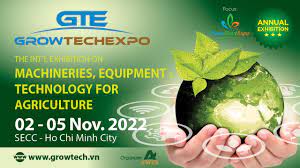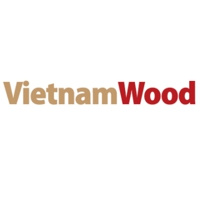- Read all
- Rice
- Fisheries
- Cassava
- Fertilizer & Pesticide
- Coffee
- Animal Feed
- Cocoa
- Seed
- Tea
- Wood
- Pepper
- Agricultural Cooperations
- Cashew
- Agricultural Investments
- Rubber
- Governmental Policies
- Sugarcane
- Agricultural Startup Ecosystem
- Corn
- Technological Innovations
- Spices
- Organic Agriculture
- Bean
- Food Manufacturing
- Fruit & Vegetable
- Agricultural Value Chain
- Flower
- Water & Waste Management
- Meat
- Processed Food
- Dairy
- Plant Originated Products
- General Agro Commodities
- Animal Originated Products
Asean Recruited In World Fight Against Malnutrition
March 8, 2016
The member states of Asean have taken a major step forward in pledging to work across various government ministries to improve nutrition at national level.
An Asean consultation convened jointly by the UN's Food and Agriculture Organization (FAO) and the Asean secretariat was announced last week.
The consultation, involving Ministries of Agriculture, Health, Rural Development, Planning and Social Welfare, is focusing on food security and nutrition to address all forms of malnutrition.
The consultation, in collaboration with the World Health Organization (WHO) and the German Foundation GIZ, is the first of its kind in Asean. It was convened to take forward the recommendations of the Rome Declaration on Nutrition in 2014 to lay a foundation for promoting nutrition-sensitive agriculture and food-based approaches in Asean to help achieve the Sustainable Development Goals (SDGs). Among the outcomes, the Rome Declaration on Nutrition stressed the need for government ministries to work together to achieve comprehensive improvements to nutrition at national level.
FAO, WHO, GIZ and Asean have been working closely together in recent years to improve nutrition and better prepare countries for future food security.
"I can say that FAO is a proud partner with Asean which has shown its determination in moving toward a food-secure future for its citizenry and placed nutrition at its core mandate and has incorporated nutrition into the Asean Integrated Food Security Framework and Its Strategic Plan of Action on Food Security (2015-2020)," said Vili A. Fuavao, FAO's deputy regional representative for Asia and the Pacific. Nutrition is also an explicit part of ASEAN's "Vision, Objectives and Goals of the ASEAN Cooperation in Food, Agriculture and Forestry sector towards 2020.
To address the multiple underlying causes of malnutrition, collaboration and coordination on food security and nutrition among sectors such as agriculture, public health, food safety, rural development and social protection, through the implementation of joint strategies and programmes, is crucial.
The participants were told that greater progress could be made if nutrition objectives were to be integrated into national agricultural and food system policies, in order to achieve food security and goals to improve malnutrition, health and development.
Agricultural development plays a critical role. It can improve the food and agriculture-based aspects of nutrition security and dietary diversity and help narrow the 'nutrition gap' by increasing the availability of a diverse range of safe and nutritious foods.
The Asia-Pacific region, despite impressive economic growth, is still home to 490 million people living with chronic hunger, some 62 per cent of the world's undernourished people. Stunting of children remains a serious challenge, with over 40 per cent in several countries.
Promoting sustainable, nutrition-sensitive agriculture and food security policies, programmes and investment plans is key to ensuring action is taken to prioritize nutrition across the world food and agriculture system. This can help improve the availability and affordability of safe and nutritious food and promote healthy and sustainable diets.
Khoa Le
Source: The Nation
Related news
-
ASEAN cooperates on digitalization in aid of rural development
In rural regions, digitalization and technological innovation present both benefits and obstacles.September 5, 2022 -
Heighten Vietnam - USA cooperation relationship through agriculture
(VAN) Through 8 proposals to the new US Agricultural Counselor, Deputy Minister Nguyen Hoang Hiep hoped that trade between the two countries would soon regain its growth momentum.November 23, 2022 -
Opportunities for Long An agricultural products to enter the Korean market
Long An province invites Korean businesses to continue investing in the agricultural product processing industry, logistics, health, beauty and importing dragon fruit products, lemons, bananas, rice...August 30, 2022 -
Vietnam and Denmark cooperate towards sustainable agriculture
In the days from August 16 to 19, 2022, the Danish business delegation in the field of Agriculture - Food will have working sessions in Hanoi and Ho Chi Minh City to exchange business and cooperation opportunities with the potential partners in Vietnam…August 18, 2022 -
Plums covered with mosquito nets are twice as profitable as regular plums, reducing harm to the environment
Placing nets for plums is a new solution to help farmers in Tan Loc and Lai Vung avoid harmful insects, reduce or not use pesticides.August 12, 2022
Events See more

Vietnamplas 2022 - Vietnam International Plastic and Rubber Industry Exhibition
23-03-2023 - 26-11-2022 09:00 - 17:00
Saigon Exhibition and Convention Center (SECC) – 799 Nguyen Van Linh Boulevard, District 7, City. Ho Chi Minh.

GROWTECH EXPO - FLORAPLANTEXPO 2021
02 - 05-11-2022 09:00 - 17:00
Saigon Exhibition and Convention Center (SECC) – 799 Nguyen Van Linh Boulevard, District 7, City. Ho Chi Minh.

VTG 2022
18 - 25-10-2022 09:00 - 17:00
Saigon Exhibition and Convention Center (SECC) – 799 Nguyen Van Linh Boulevard, District 7, City. Ho Chi Minh.

VIETSTOCK 2022 - SPECIALISED EXHIBITION OF LIVESTOCK, FEED AND MEAT PROCESSING IN VIETNAM
12 - 14-10-2022 08:00 - 17:00
799 Nguyen Van Linh, Tan Phu Ward, Dist. 7, Hochiminh City, Vietnam

VTG 2022
21 - 27-09-2022 09:00 - 17:00
Saigon Exhibition and Convention Center (SECC) – 799 Nguyen Van Linh Boulevard, District 7, City. Ho Chi Minh.
.png)
VIETFISH 2022
22 - 26-08-2022 09:00 - 17:00
Saigon Exhibition and Convention Center (SECC) – 799 Nguyen Van Linh Boulevard, District 7, City. Ho Chi Minh.
Business Opportunities See more
-
BURANI INTERFOOD is looking for Buyers in Vietnam
Type:
November 22, 2021
-
BURANI INTERFOOD is looking for Buyers in Vietnam
Type: Wholesaling Meat
November 22, 2021
-
BURANI INTERFOOD is looking for Buyers in Vietnam
Type: Wholesaling Meat
November 22, 2021
-
BURANI INTERFOOD is looking for Buyers in Vietnam
Type: Wholesaling Meat
November 19, 2021
-
BURANI INTERFOOD is looking for Buyers in Vietnam
Type:
November 19, 2021
-
Indian purchaser looking for high quality cashew nut kernel from Vietnam
Type: Exporting Cashew
Mar 14, 2016
534
Limitless database of qualified and verified agricultural partners
124
Exclusive buy & sell leads on specific agricultural commodities
24
Agricultural events in Vietnam and Asia Pacific region
Stay informed!
Enter your email address below to receive updates each time we publishes new content
